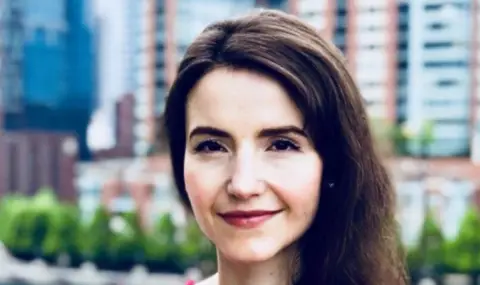We study what people know, how they perceive, understand and reason about economic policies. We economists have as much to learn from society as we teach. We immerse ourselves in the experience of society and can create better policies. People's experiences give a much better picture of policies. She shared this in an interview on the program "Saturday 150" Prof. Stefani Stancheva from Harvard University.
This week she was awarded the prestigious Young Scientist Award of the American Economists Association.
The 39-year-old Prof. Stancheva is said to be among the best economists of the decade.
And her award - named after John Bates Clark, an American neoclassical economist, is for her work in the field of public economics, which studies the taxation of companies and individuals, how people understand economic attitudes, what their perceptions are, and also their understanding of climate change, migration and other global issues.
"Our innovation is based on so-called "big data", but they are on something that happens in the minds of citizens and we do it with large-scale surveys developed by us," Prof. Stancheva told the Bulgarian National Radio.
At Harvard has created a social economics laboratory:
"In the US and other countries, they hate inflation. However, the main reason is that our wages do not keep up with inflation. People believe that employers have freedom of action, not that they are limited by market forces. Inflation creates a sense of injustice and people with low incomes are most affected. Inflation creates negative stress and anger, and in the US it is often directed at business, the government and the system."
Prof. Stancheva commented on the economic policies that parties propose in order to vote for them:
"These are abstract things and shape our lives, but economic education is absent from education. For most people, for us as citizens, we have to vote for policies, and we do not receive a basic education in economics, we study biology, chemistry, physics, etc., and economics is a basic science.
Prof. Stancheva explained that she is currently working for "zero-sum thinking", that one person's profits come at the expense of others.
"This has an impact on policies. Ask yourself questions, if migrants win, it is at the expense of local residents. Do you believe that if the rich win, the poor necessarily lose? If someone gets the bigger piece of the pie, then someone else will get less. In our study, we prove that this is the attitude. This attitude is strongly related to the experience of the family, the experience of the country and is not an effect of age, but of generation. Bulgaria is in the middle - with a small effect of age," explained Prof. Stancheva.
